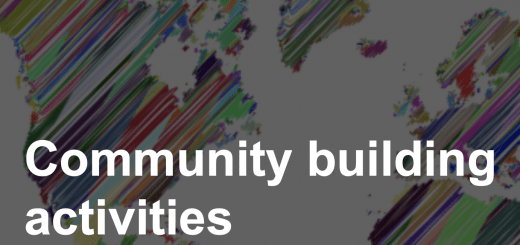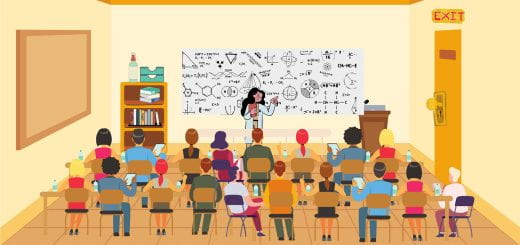Summer Reading Recommendations from CTL

Summer is a classic time to catch up on some reading. It is also the perfect time to explore new ideas about teaching! I asked my colleagues in the Center for Teaching and Learning what titles are on their summer reading stack and share their recommendations. See below for a dozen recommendations for your teaching summer reading list:
Lauren Barbeau, Assistant Director of Learning and Technology Initiatives
Remembering and Forgetting in the Age of Technology: Teaching, Learning, and the Science of Memory in a Wired World
Michelle D. Miller, West Virginia University Press – A nontechnical overview of the principles of memory and attention as they apply to teaching and learning.
Improving Learning and Mental Health in the College Classroom,
Robert Eaton, Steven V. Hunsaker, and Bonnie Moon, West Virginia University Press – Practical tips gathered from interviews and the Scholarship of Teaching and Learning on how faculty can reduce student stress without increasing their own workloads.
Karen Franklin, Faculty Teaching and Learning Specialist
What Inclusive Instructors Do: Principles and Practices for Excellence in College Teaching
by Tracie Marcella Addy (Author), Derek Dube (Author), Khadijah A. Mitchell (Author), Mallory E. SoRelle (Author), Buffie Longmire-Avital (Foreword), Peter Felten (Foreword) This book uniquely offers the distilled wisdom of scores of instructors across ranks, disciplines and institution types, whose contributions are organized into a thematic framework that progressively introduces the reader to the key dispositions, principles and practices for creating the inclusive classroom environments (in person and online) that will help their students succeed.
— This will be the book selection for the Fall 2023 Book Club
Race After Technology: Abolitionist Tools for the New Jim Code
by Ruha Benjamin From everyday apps to complex algorithms, Ruha Benjamin cuts through tech-industry hype to understand how emerging technologies can reinforce white supremacy and deepen social inequity. Benjamin argues that automation, far from being a sinister story of racist programmers scheming on the dark web, has the potential to hide, speed up, and deepen discrimination while appearing neutral and even benevolent when compared to the racism of a previous era.
— This will be the book selection for the Spring 2024 Book Club.
Tammy McCoy, TA and Future Faculty Specialist
Black, Brown, Bruised: How Racialized STEM Education Stifles Innovation
by Ebony Omotola McGee. Amazon summary: Drawing on narratives from hundreds of Black, Latinx, and Indigenous individuals, Ebony Omotola McGee examines the experiences of underrepresented racially minoritized students and faculty members who have succeeded in STEM.
Race After Technology: Abolitionist Tools for the New Jim Code 1st Edition
by Ruha Benjamin. Amazon summary: From everyday apps to complex algorithms, Ruha Benjamin cuts through tech-industry hype to understand how emerging technologies can reinforce White supremacy and deepen social inequity. Benjamin argues that automation, far from being a sinister story of racist programmers scheming on the dark web, has the potential to hide, speed up, and deepen discrimination while appearing neutral and even benevolent when compared to the racism of a previous era.
Carol Subiño Sullivan, Assistant Director of Faculty Teaching and Learning Initiatives
The Norton Guide to Equity-Minded Teaching
by Isis Artze-Vega, Flower Darby, Bryan Dewsbury, and Mays Imad: Equity-minded educators design their online and in person courses with attention to relevance, rigor, and transparency. They teach by fostering student belonging and trust, and by facilitating learning in well-structured and highly-relational physical and virtual learning environments. Finally, they reflect on students’ and their own experiences and actions, using reflection and data to identify areas for further enhancement. The authors focus on ways to make the current reality of teaching and higher education more equitable, but ultimately build towards a vision of what they call a learning sanctuary. In this learning sanctuary, educator intentionally empower students to co-create meaning, purpose and knowledge. The book is a mix of inspiring wisdom and practical advice.
The AI Classroom: The Ultimate Guide to Artificial Intelligence in Education
By Daniel Fitzpatrick, Amanda Fox, and Brad Weinstein: This book is full of practical guidance on how to productively engage with AI in higher education, including strategies for using it in teaching. The authors make a case for the potential of AI to transform higher education, opening up more possibilities for personalized learning and to free up time previously spent in doing routine tasks so both faculty and students can spend more time on creative and critical thinking. There are useful frameworks and checklists that can be easily shared with students to help them learn to use AI effectively and ethically.
Kate Williams, Interim Director of Transformative Teaching and Learning Faculty Development Initiatives and Assistant Director of TA and Future Faculty Initiatives
Specifications Grading
by Linda Nilson, offers a philosophical and practical alternative to traditional grading that maintains high expectations while tapping into motivation and learning theories that build student agency and academic wellbeing. With many examples of how to use specs grading in whole or part, this book will offer an opportunity for grading to be a more positive experience for students and faculty alike.
Next up:
Distracted: Why students can’t focus and what you can do about it, by James Lang, promises to be a timely and inspirational read. Lang’s books balance the science of learning with captivating instructors’ stories and this accessible text about how our brains are hardwired to manage distraction is sure to provide new perspectives on how students learn.
Boni Yraguen, CTL Graduate TA, PhD Candidate in Mechanical Engineering:
The art of Insubordination: How to Dissent and Defy Effectively
by Todd Kashdan. A highly practical and researched-based toolbox for anyone who wants to create a world with more justice, creativity, and courage. Learn the skills for unlocking the benefits of diverse teams.
The Hidden Curriculum: First Generation Students at Legacy Universities
by Rachel Gable. A revealing look at the experiences of first generation students on elite campuses and the hidden curriculum they must master in order to succeed.




